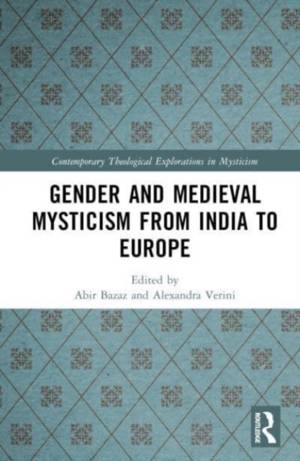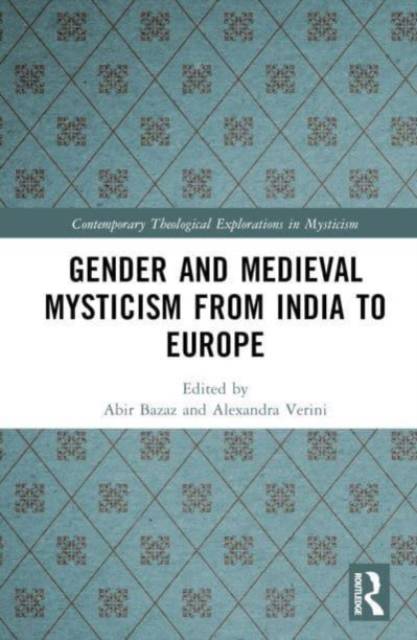
Je cadeautjes zeker op tijd in huis hebben voor de feestdagen? Kom langs in onze winkels en vind het perfecte geschenk!
- Afhalen na 1 uur in een winkel met voorraad
- Gratis thuislevering in België vanaf € 30
- Ruim aanbod met 7 miljoen producten
Je cadeautjes zeker op tijd in huis hebben voor de feestdagen? Kom langs in onze winkels en vind het perfecte geschenk!
- Afhalen na 1 uur in een winkel met voorraad
- Gratis thuislevering in België vanaf € 30
- Ruim aanbod met 7 miljoen producten
Zoeken
Gender and Medieval Mysticism from India to Europe
€ 290,45
+ 580 punten
Omschrijving
This book opens up a dialogue between pre-modern women identified as mystics in diverse locations from South Asia to Europe. It considers how women from the disparate religious traditions of Hinduism, Islam, and Christianity expressed devotion in parallel ways. The argument is that women's mysticism demands to be compared not because of any essential "female" experience of the divine but because the parallel positions of marginalization that pre-modern women experienced led them to deploy intimate encounters with the divine to speak publicly and claim authority. The topics covered range from the Sufi devotional tradition of Sidis (Indians of African ancestry) to the Bhakti poet Mīrābaī and the nuns of Barking Abbey. Collectively the chapters show how mysticism allowed premodern women to speak and act by unsettling traditional gender roles and expectations for religious behavior. At the same time as uncovering connections, the juxtaposition of women from different traditions serves to highlight distinctive features. The book draws on a range of disciplinary expertise and will be of particular interest to scholars of medieval religion and theology as well as history and literary studies.
Specificaties
Betrokkenen
- Uitgeverij:
Inhoud
- Aantal bladzijden:
- 246
- Taal:
- Engels
- Reeks:
Eigenschappen
- Productcode (EAN):
- 9781032358499
- Verschijningsdatum:
- 29/09/2023
- Uitvoering:
- Hardcover
- Formaat:
- Genaaid
- Afmetingen:
- 156 mm x 234 mm
- Gewicht:
- 535 g

Alleen bij Standaard Boekhandel
+ 580 punten op je klantenkaart van Standaard Boekhandel
Beoordelingen
We publiceren alleen reviews die voldoen aan de voorwaarden voor reviews. Bekijk onze voorwaarden voor reviews.








